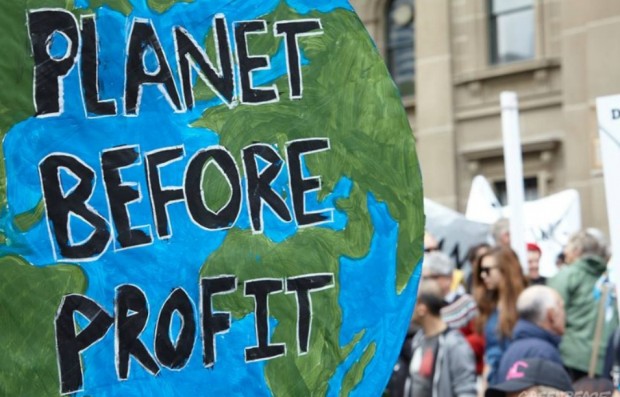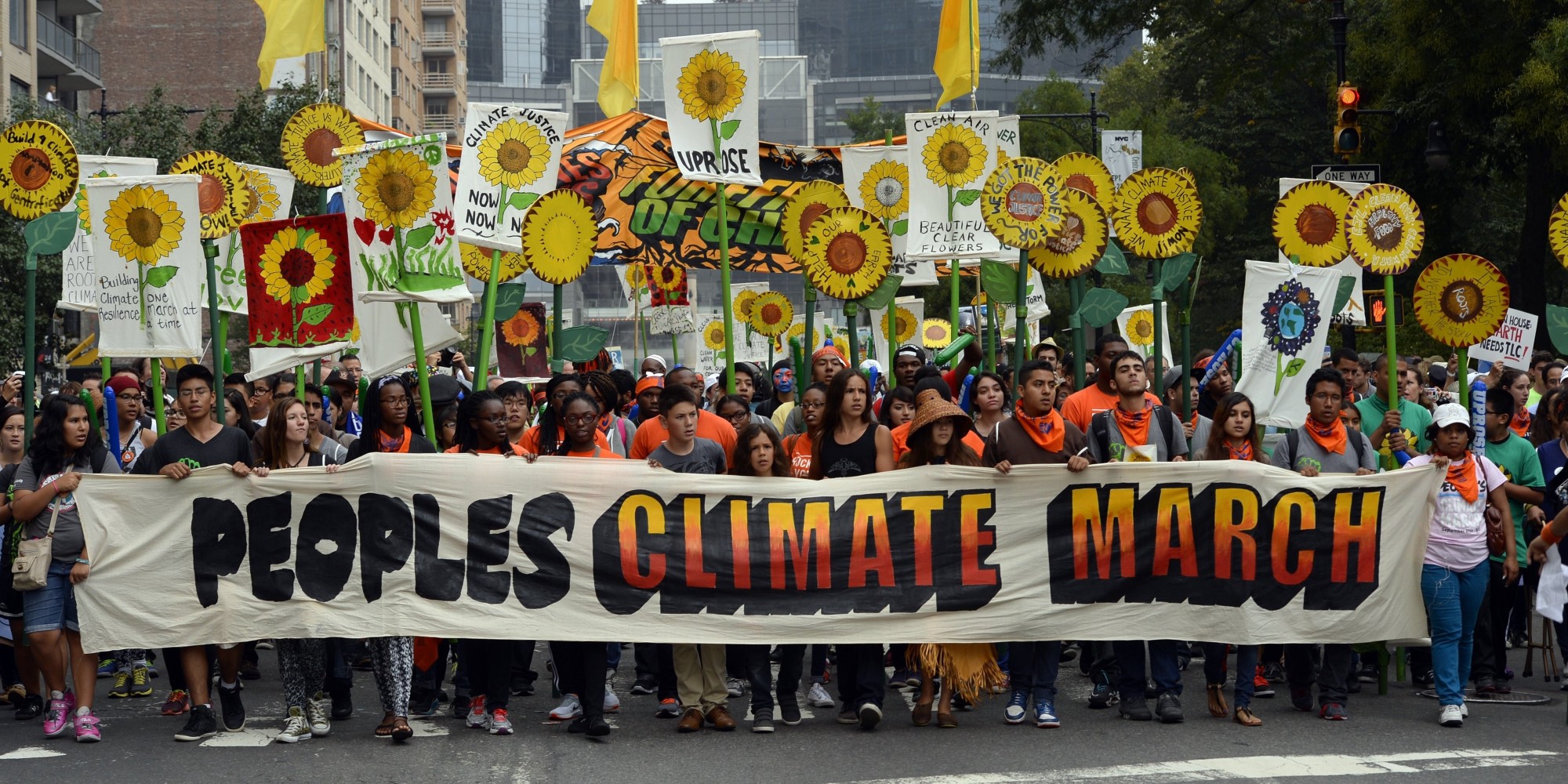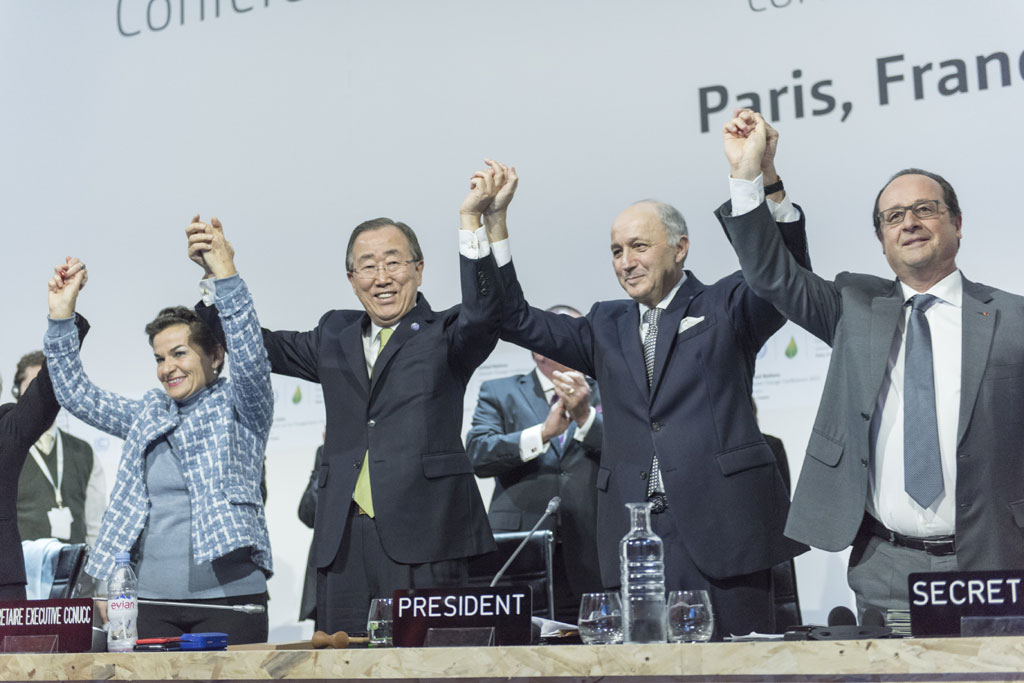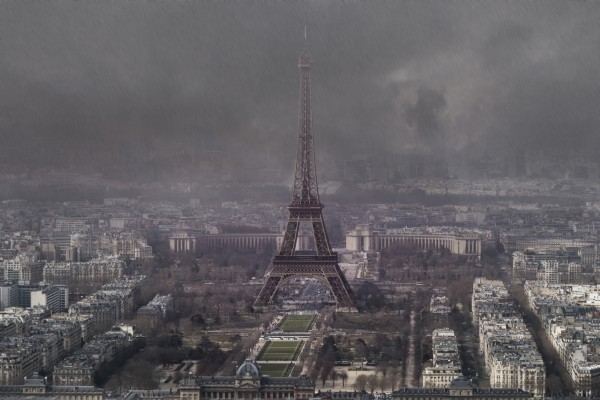Asbjørn Wahl speaks at the Citizen’s Climate Summit in Paris…
“Humanity is currently faced with a number of deep and challenging crises: economic crisis, social crisis, political crisis, food crisis – and last, but not least, the climate crisis, which is threatening the very existence of millions of people on this planet. These crises have many of the same root causes, which go to the core of our economic system. Strong vested interests are involved. It is thus an interest-based struggle we are facing. All over the world, people are organising and fighting against the effects of the crises. Trade unions are heavily involved in many of these struggles, and so are many other movements – single-issue as well as broader social movements. Increasingly, our entire social model, the way we produce and consume, is being questioned. The way out of these crises require a system change, which can only be achieved if we are able considerably to shift the balance of power in society. This leaves us with the challenge of unifying movements and on-going struggles – particularly to unify the anti-austerity with the climate change struggle, which I will deal with in the following.
The failure of the COP process
Governments have been negotiating for more than 20 years (more or less since the Rio Summit in 1992) in order to agree on measures which can save us from the climate crisis. What has happened during those more than 20 years, however, is not a cut of greenhouse gas (GHG) emissions, which is required. Quite the opposite. Emissions have increased immensely, by more than 60% from 1992. Transport emissions have increased 120% over the last 30 years, and they are still increasing all over the world – even at a rate that outweigh cuts in other sectors of the economy.
Given the catastrophic effects that global warming will have, why have our governments not been able to agree on necessary measures – which are both possible and realistic – to cut GHG emissions? It is not because there is a lack of solutions. The climate crisis can be prevented. We do have the knowledge and technology we need to do so. What we lack is the social, political and economic power sufficient to carry out the measures necessary to stop global warming. It is, in other words, a question of power.
This social, political and economic power to stop global warming, however, will not come from the economic and political elites that govern us and control big oil and big finance. Only massive pressure from below, from a broad coalition of trade unions, other social movements, environmentalists and others can save us from climate catastrophe.
An interest-based struggle
We are talking about vested interests, and we are up against some of the most powerful corporations in the world – in alliance with an army of neoliberal politicians serving their interests. Seven of the 10 biggest and most powerful companies in the world are oil companies. These companies are using all their power to avoid policies that can hurt their economic interests. They execute enormous economic and political power. Where politicians are for sale, they buy them. Where governments or regimes challenge their power, these companies contribute in getting rid of them. Etc., etc.
The effects of the economic, social and political crises we live with, and have lived with for quite a while, is another interest-based struggle – and it is not so difficult to identify the different interests. Workers all over the world fight against the crises – they fight for jobs, they fight for decent jobs, they fight for living wages, they fight for social protection, they fight against unemployment, they fight against social degradation, they fight to improve their communities, for the livelihood of themselves and their families. Much of the policies addressing these crises, are named austerity policies. Austerity policies are not, as some will have it, “necessary cuts in over-expanded public services” or “necessary downward adjustment to make workers’ wages competitive”. Austerity is a class-based policy, policies that are carried out in order to destroy the welfare state, privatise public property and public services and defeat the trade union movement – with the final aim of increasing the return of investment. This represents the main frontline in the class war which is currently riding the world.
Systemic crises
The fight against climate change – against climate catastrophe – is not an extra struggle that the trade union movement must take on, in addition fighting austerity. It is, and will increasingly be, an important part of the same struggle. If climate change is not stopped, or limited to the 1.5 or 2.0oC, which is within reach if we act rapidly and forcefully, it will actually become job-killer number one. It will destroy communities, it will destroy millions and millions of jobs and it will lead to enormous social degradation. It will further redistribute wealth from the bottom to the top, and massively increase poverty and cause emigration crises of unknown dimensions. Our struggle to avoid devastating climate change is therefore an important part of the interest-based struggle on what kind of society we want.
Both the economic crisis and the climate crisis are systemic crises. They are both rooted in the same economic system. A system which is geared toward making profits rather than producing use values. A system which is dependent of economic growth (a capitalism without growth is a capitalism in crisis). A system which is exploiting workers and over-exploiting natural resources. An economic system which is crisis-ridden and which again and again creates and recreates mass unemployment, poverty and misery. Now, it is also about to destroy planet earth as a place to live for future generations.
Public ownership and democratic control
To stop this, we have already heard many times during our meeting these days that we need to act rapidly and forcefully. We are already just about to pass the point of no return regarding the 2.0oC threshold of global warming. During the more than 20 years of the COP process, we have seen that big oil, big finance, neoliberal governments and market forces have not been able to solve these problems for us. The same goes for the economic and social crises. Quite the opposite. They are mobilising all their power to avoid any restrictions on their desperate hunt for more profit. More austerity and more GHG emissions are the results.
The only way to meet these challenges is therefore to bring these powerful corporations and institutions under democratic control. That requires the mobilisation of enormous social and political power. Neither the trade union movement, nor the environmental movement, nor sectoral social movement of other sorts, nor single-issue movements are able to win this struggle alone. We need, more than at any time before, to build broad alliances of social movements – and others – if we are to turn the tide in this struggle.
Unify the social with the climate change struggle
The trade union movement will have to play a decisive role in this struggle, because of its strategic position in society. However, we have to be honest and admit that so far, the trade union movement has not taken sufficient responsibility in fighting these crises. Trade unions are on the defensive all over the world. There are reasons for that, which I am not going to go deeply into here today, even though it is an immensely important issue which I think should have been higher on the agenda in many meetings here, not least the meetings organised by trade unions themselves. Maybe that could also have helped us to go beyond the very narrow, textual preoccupation of the so-called “just transition”, to focus more on the strategies to achieve it.
Anyway, the main tasks we face today seems quite clear to me. We have to unify the social struggle with the climate change struggle – since the root causes as well as the measures necessary to fight them are many of the same. We have to build broad alliances – strong enough to mobilise sufficient power to shift the balance of power in society. To bring strategic sectors of our economy into public ownership under democratic control will have to be a decisive part of such a struggle. In the climate change struggle, the energy sector stand at the forefront. CO2 emission is all about energy, and without bringing it under democratic control, there is no possibility to achieve the transformations we need, deeply and rapidly enough.
Growing pressure from below!
The anti-austerity struggle raises the need for public ownership and democratic control in a number of other areas – in defence of public utilities as well as in the fight to bring privatised property and services back under democratic control. The fight against climate change and the fight against austerity cannot be abstract and too general. These struggles have to address concrete problems and solutions in workers’ and people’s daily life. We need to unify and make the struggles broader, as experiences teach us to do. Most unions today are involved in some kind of anti-austerity fights. Ever more trade unions actually join the campaign against climate change. Initiatives like the Trade Unions for Energy Democracy (TUED) and the Global Climate Jobs network represent important developments in this regard. What we need now are broad coalitions willing to fight, a more radical agenda, more militancy and thus a growing pressure from below.”
Asbjørn Wahl, Chair of the ITF Working Group on Climate Change
Contribution at a seminar organised by the Rosa Luxemburg Foundation, New York Office
Peoples’ Climate Summit, Paris, 5 December 2015











